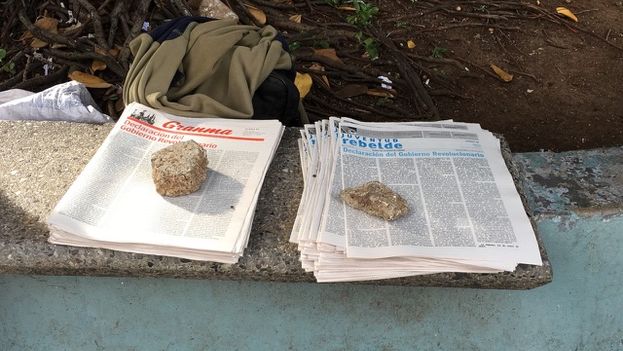
![]() 14ymedio, Havana, 27 April 2017 — Reporters Without Borders (RSF) has placed Cuba in position 173 on its 2017 World Press Freedom Index published on Wednesday, two places lower than last year, and in the lowest category (shown in black), along with “the worst dictatorships and totalitarian regimes in Asia and the Middle East,” according to the NGO.
14ymedio, Havana, 27 April 2017 — Reporters Without Borders (RSF) has placed Cuba in position 173 on its 2017 World Press Freedom Index published on Wednesday, two places lower than last year, and in the lowest category (shown in black), along with “the worst dictatorships and totalitarian regimes in Asia and the Middle East,” according to the NGO.
Cuba is the only country on the American continent and the Caribbean that is in this section of the index and is almost at the end of the list.
According to a note published by the NGO, the Cuban government “is the most hostile on the American continent to the freedom of the press,” emphasizing that the state maintains a monopoly on the press and that the situation “has not changed after the death of Fidel Castro.”
In addition, RSF has described the former Cuban leader, who died in November 2016, “as one of the greatest offenders again press freedom on the planet.”
This classification contrasts with the report of attacks on the press published Tuesday by the Committee for the Protection of Journalists (CPJ), according to which “Cuba’s media landscape has begun opening up in recent years,” thanks to a timid increase in Internet connectivity and a generation of journalists who are “who are critical of, yet still support, socialist ideas.”
The RSF publication shows how the Caribbean country shares positions at the bottom of the list with Egypt, Libya, Iran, Yemen, Syria, China and North Korea, countries in which, according to the note, the deterioration of press freedom is “very serious.”
In Latin American countries such as Venezuela, Mexico, Honduras, Guatemala and Colombia, the organization believes that the press is in “a difficult situation.”
North Korea ranks lowest on the list in terms of freedom of the press, according to the NGO, a country “which continues to be a Cold War dictatorship,” in which “listening to a radio station from outside the country may lead to a concentration camp.”
However, RSF notes that the quality of press freedom has declined globally, where the western democracies are no exception even though they occupy the top of the list
Since 2002 an international group of journalists has produced this list, where 180 countries have been listed, following a series of criteria such as the independence of the media in each nation, the legislation under which journalists work, and the pluralism and security of journalists in the performance of their profession.
